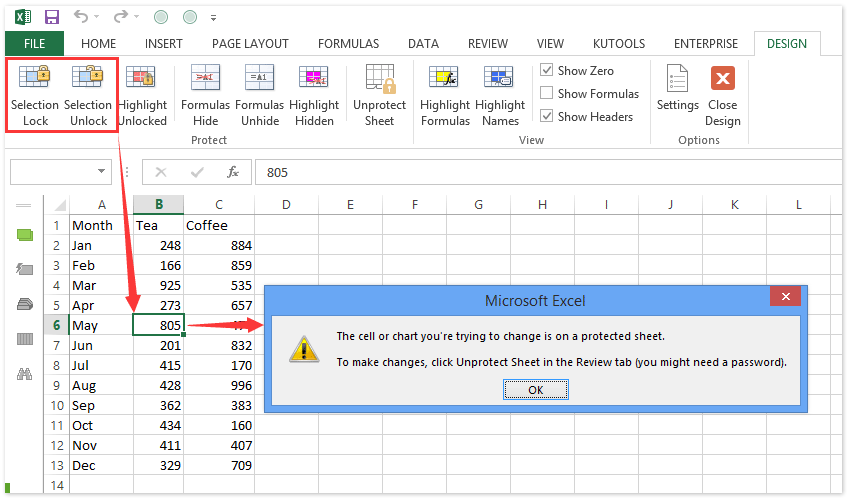Protecting Excel Cells Without Sheet Lock: A How-To Guide

Excel spreadsheets are powerful tools for organizing, analyzing, and presenting data. However, sharing these documents can sometimes expose them to unintended changes or data loss. One effective way to protect your data without resorting to full sheet lock is by selectively locking cells in Excel. This method ensures that only specific cells are editable while keeping the rest secure. Here's how you can achieve this:
Understanding Cell Protection

Before we dive into the steps, let’s clarify what we mean by “cell protection” and why it’s different from locking a sheet:
- Cell Protection: This involves preventing editing, formatting changes, or alterations to the content of specific cells.
- Sheet Lock: This locks the entire sheet, restricting any form of editing unless the user knows the password.
By selectively protecting cells, you allow for collaborative editing on some parts of your spreadsheet while safeguarding critical data in others.
Steps to Protect Cells in Excel

Here’s how you can protect cells in Excel without locking the entire sheet:
1. Unlock All Cells

By default, all cells in a new Excel sheet are locked, but this lock only takes effect once you protect the sheet. To selectively protect cells, first, unlock all cells:
- Select the entire sheet by pressing
Ctrl+A. - Right-click and choose “Format Cells,” or press
Ctrl+1. - Go to the “Protection” tab and ensure that “Locked” is unchecked.
2. Select and Lock Specific Cells

Now, identify the cells you want to lock:
- Select the cells you want to protect.
- Again, use the “Format Cells” option (
Ctrl+1). - Check the “Locked” option in the “Protection” tab.
3. Protect the Sheet

With the specific cells locked, now you’ll protect the sheet:
- Go to the “Review” tab.
- Click on “Protect Sheet.”
- Set a password if desired.
- Make sure to check “Select locked cells” and “Select unlocked cells” to allow users to navigate through the sheet.
- Click “OK” to apply.
⚠️ Note: Ensure you remember the password if you set one. Losing it might render your sheet uneditable!
Advanced Cell Protection Techniques

Beyond basic locking, Excel offers several advanced options for protecting cells:
1. Hide Formulas

This prevents users from seeing the formulas you’ve entered into cells:
- Select the cells with formulas.
- Open “Format Cells.”
- In the “Protection” tab, check “Hidden.”
- Protect the sheet as above.
2. Protect Data Validation

Lock cells with data validation rules to prevent unauthorized changes:
- Select the cell with data validation.
- Protect the sheet as described earlier.
- Ensure “Data Validation” is unchecked under “Allow all users of this worksheet to:”
3. Table and Range Lock

Locking ranges or tables within your sheet:
- Create a named range or table.
- Select cells to lock within that range or table.
- Lock and protect as previously detailed.
Notes on Cell Protection

🔍 Note: Protection features are not meant as security features; they can be bypassed by determined users with administrative access.
As we've explored, selectively protecting cells in Excel allows for a flexible approach to managing shared documents. By mastering these techniques, you can ensure that your data remains accurate and secure, while still allowing for collaborative editing where appropriate. This method of protection balances security and usability, catering to various user needs in a shared environment.
Can I protect cells without setting a password?

+
Yes, you can protect cells without a password, but remember this won’t prevent users with basic Excel skills from unprotecting the sheet.
What happens if I forget the password?

+
Unfortunately, Microsoft does not provide a way to recover lost passwords. You’ll need administrative access or third-party software to bypass sheet protection.
How can I see which cells are locked?

+
While the sheet is unlocked, use the “Go To Special” feature (under “Find & Select” in the “Home” tab) and choose “Locked cells” to highlight all locked cells.
Can I apply different protection levels to different cells?

+
Yes, by selectively locking cells as described, you can apply different protection levels to different parts of your spreadsheet.



